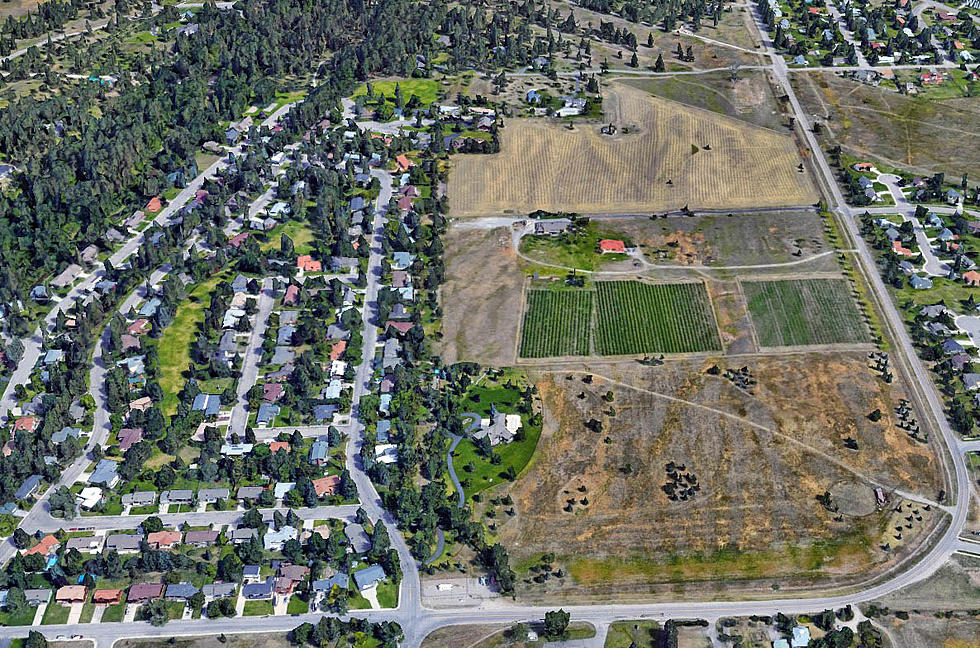
Advocates: Ten Spoon easement would serve as refuge for wildlife, people in growing Missoula
Martin Kidston
(Missoula Current) Changes to the ecosystem at upper elevations and growth in the valley bottoms has forced Montana's wildlife into a difficult spot – something Andy Sponseller witnessed recently when hiking near his Rattlesnake home.
He encountered a grizzly sow with three cubs and, in his words, they looked desperate.
“They're getting pushed down out of the high country because they don't have enough food. They're getting pushed out of the valley or put in trap trailers and hauled to some place else, just so they can go through whole cycle again,” he said. “When are we going to take some responsibility for our impact on the creatures?”
Sponseller co-owns the Ten Spoon Winery with Connie Poten and together, they have proposed placing their 21-acre property under a conservation easement with the City of Missoula.
Doing so would carve out a large tract of desirable property between the open hills that ring the Rattlesnake Valley and the wilderness just north. It would also preserve some of the habitat and agricultural soils on the valley bottoms that are quickly being lost in Missoula as growth spreads ever-further from the city center.
“Agriculture, wild lands and wildlife habitat generally take a back seat to development almost every day. I've witnessed it,” Sponseller said. “Housing crises come and go. They're cyclical. But the one thing that gets less every year is land that's available for people to recreate on, for people to grow things on, and for animals to use. There's almost no good place for animals to go anymore.”
Conservation Easement
Sponseller and other advocates on Monday night made a pitch to the City Council asking it to support the conservation easement. The city's cost would amount to just $40,000 to cover legal fees and paperwork.
The revenue would come from the voter approved Open Space Bond. The conservation of native grasslands, open space and agriculture soils represent a good use of the funding, advocates believe.
“It was a big part of the bond,” council member Amber Sherrill said of the agricultural piece. “It was written into the bond language.”
The parcel has long accommodated both humans and wildlife in recent centuries. According to the property owners, the Salish and other tribes crossed the field when tracking buffalo further east, and they often burned the grasslands to remove cover from their Blackfeet foes.
European settlement reached the property in the early 20th century when a German Baron named “Ratcliffe” planted apple trees and built a small stone castle, which no longer stands. A Swiss immigrant later purchased the property.
Connie Poten and several others bought the plot in 1991 from Sunlight Development, a subsidiary of Montana Power. A number of buy-sell agreements followed, leaving Poten and Sponseller as the owners of their 21-acre parcel.
Now, they're looking to place that land into the public trust as a conservation easement while maintaining ownership of the property. City staff have praised the location for its irrigation and agriculture, but also its use by wildlife including wolves, bears and migratory birds.
The proposal has the full support of the Open Space Advisory Committee.
“I've voted on quite a few of these projects and this one is pretty unique,” said committee chairman Eric Anderson. “It ticks a lot of boxes for open space values. It's a great wildlife corridor within a heavily used recreational-use area. It protects scenic values in an urban area. We felt like this was a good use of bond money. In comparison to past expenditures, this is a pretty small ask.”
A deal at $40K
The city has bought other easements and open space in recent years, none of them costing as little as $40,000.
In 2019, the city spent $450,000 to conserve 124 acres above Grant Creek in the North Hills. In 2020, it contributed $456,000 in open space funding to help purchase 350 acres on Mount Dean Stone in the South Hills. It's also considering the purchase of Marshall Mountain.
But in recent weeks, city park officials have said that while Missoula does a fine job protecting open space across the hills, it hasn't done so well preserving agricultural land on the valley bottom.
“The focus on agriculture for parks' staff has been huge, because it's so difficult to set aside ag lands, especially ag lands with soils of local importance that are already irrigated,” said parks director Donna Gaukler.
The City Council will need to approve accepting the property as a conservation easement, and its members have withheld their opinions as the public comment period plays out.
Some have asked if the land is better suited for housing, something in high demand in Missoula. But they also note that it's private property, and the owners can conserve the parcel if they so desire.
So far, no one has voiced opposition to the city accepting the easement as a gift, but many have voiced support.
“Keeping it in perpetuity as agriculture land is a wise decision, and more long-sighted than just building a lot of housing,” said Larry Gardner.
